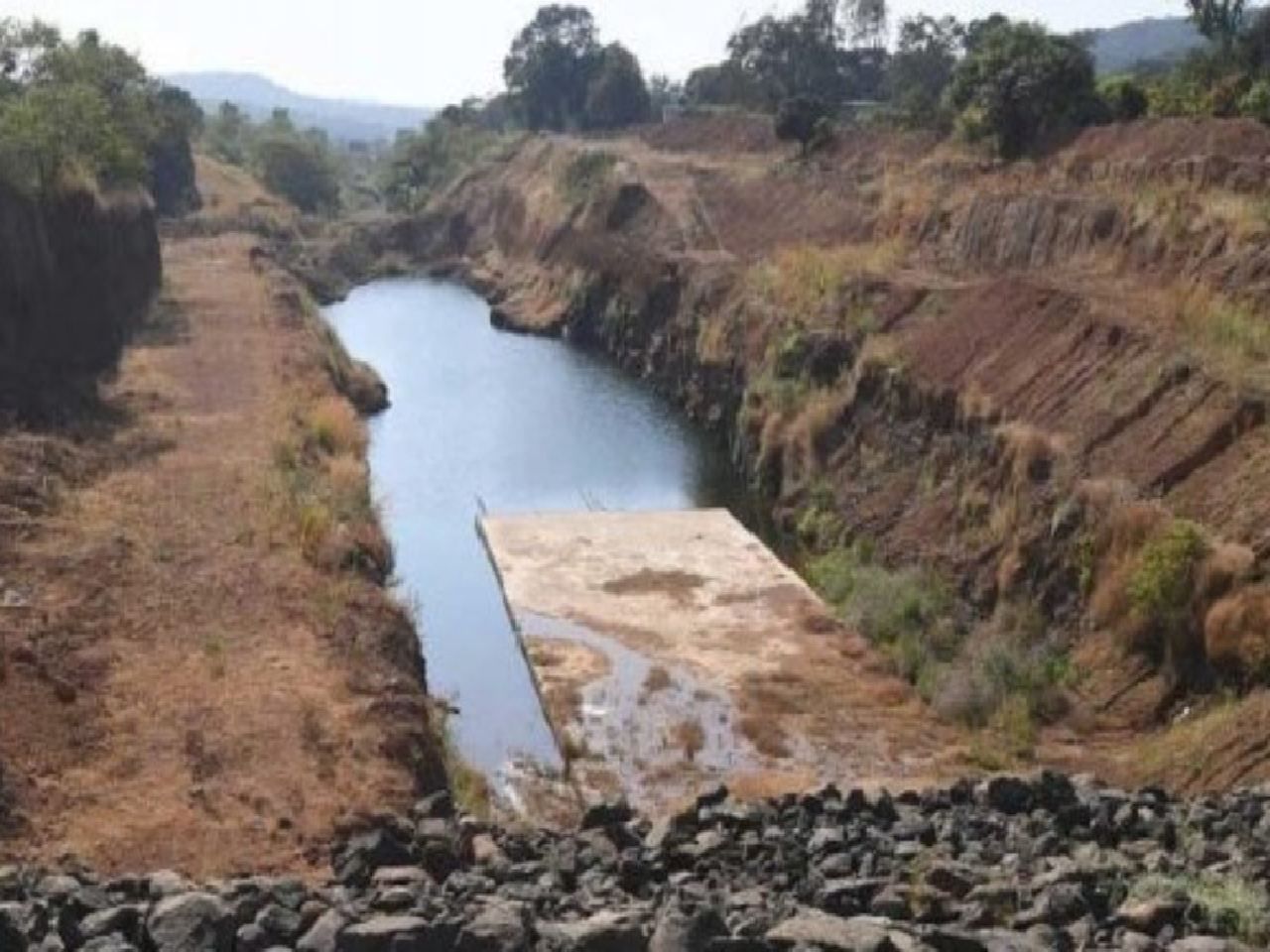


The state cabinet of Karnataka expressed its disappointment over the National Wildlife Board's decision to not clear the Kalasa-Banduri Nala (Mahadayi) drinking water project. In response, the cabinet has decided to hold an all-party meeting to discuss the matter and petition Prime Minister Narendra Modi against what they see as a grave injustice to the people of Karnataka. They have also directed the law department to seek legal counsel on filing a petition in the Supreme Court challenging the NWB's decision. Additionally, the cabinet discussed objections raised by Pramoda Devi Wadiyar regarding the Chamundeshwari Development Authority and clarified that they are within their rights to hold the meeting.
Kalasa-Banduri Dispute: Karnataka Cabinet Expresses Disappointment
Background:
The Kalasa-Banduri Nala is a tributary of the Mahadayi River that flows through the states of Karnataka, Maharashtra, and Goa. Since the 1980s, there has been a dispute over the sharing of water from this river, with Karnataka claiming it requires the water for drinking purposes, while Maharashtra and Goa assert that it is crucial for irrigation.
Cabinet Decision:
On August 6, 2023, the Karnataka state cabinet expressed its disappointment over the National Wildlife Board's (NWB) decision not to clear the Kalasa-Banduri Nala drinking water project. The state government has decided to hold an all-party meeting to discuss the matter and petition Prime Minister Narendra Modi against the decision. They have also instructed the law department to seek legal counsel on filing a petition in the Supreme Court challenging the NWB's decision.
Objections Raised:
In a related development, Pramoda Devi Wadiyar, a member of the erstwhile royal family of Mysuru, has raised objections to a meeting held by the Chamundeshwari Development Authority. The cabinet clarified that the authority has the right to conduct the meeting.
Top 5 FAQs:
Q: Why is Karnataka seeking to divert water from the Kalasa-Banduri Nala? A: Karnataka claims that it requires the water to meet the drinking water needs of its northern districts.
Q: What is the NWB's decision and why has Karnataka taken offense? A: The NWB has refused to clear the Kalasa-Banduri Nala project due to concerns about its impact on the Kali Tiger Reserve. Karnataka sees this as an injustice.
Q: What are the objections raised by Pramoda Devi Wadiyar? A: She has questioned the legitimacy of a meeting held by the Chamundeshwari Development Authority and the legality of its decision-making process.
Q: What is the Karnataka government's next course of action? A: The government will hold an all-party meeting, petition the Prime Minister, and consider legal options.
Q: What are the implications of the NWB decision for Karnataka and its people? A: The decision could delay or even derail the provision of drinking water to the affected districts, potentially impacting the well-being of its residents.

The Pasighat police in East Siang district, Arunachal Pradesh have arrested the 33-year-old boys' hostel warden of Sanggo English School for sexually assaulting minor students. This came to light when a student was hospitalized for urogenital complications. The incident has sparked outrage from parents and the public, demanding strict action against the accused warden. In response, the Arunachal Pradesh State Human Rights Commission (APSHRC) has taken suo motu cognisance and ordered for a detailed report on the investigation, victim protection, and school management.

Actress Siddiqa Begum, daughter and legal heir of Shah Bano, has served a legal notice on the makers of the upcoming Bollywood film 'Haq'. The notice states that the film's unauthorized depiction of the personal life of Shah Bano without the consent of her legal heirs is a violation of their rights. 'Haq' is based on the landmark 1985 Supreme Court case that granted maintenance to Shah Bano, a Muslim woman, from her divorced husband.

After four years, the 'Darbar Move' tradition in Jammu and Kashmir has been restored, fulfilling the promise of the government and bringing a boost to the economy. National Conference chief Farooq Abdullah expressed happiness, noting that those who sought to separate Jammu and Srinagar have failed. Chief Minister Omar Abdullah received a warm reception and inspected the secretariat premises after the ceremony, as security in the region was heightened for the occasion.

Delhi Legislative Assembly Speaker Vijender Gupta praised Swami Dayanand Saraswati as not just a saint and reformer, but also a pivotal figure in India's freedom struggle. Speaking at the International Arya Samaj Conference, Gupta highlighted how Swami Dayanand's teachings sparked a revolution that led to the nation's independence. The event was attended by esteemed guests including Gujarat Governor Acharya Devvrat and top officials from the Arya Samaj community, all paying tribute to the enduring impact and legacy of Swami Dayanand Saraswati.

The Metro Railway Kolkata has announced a major schedule expansion for its Yellow Line, which runs between Noapara and Jai Hind Bimanbandar (Airport) in Kolkata. Starting from 3 November, weekday operations will increase to 120 services with extended operating hours, providing greater convenience and accessibility to commuters. Weekend travellers will also see a significant frequency upgrade, making travel on Saturdays and Sundays hassle-free. This move is expected to improve the overall public transportation system in the city and benefit the commuters.

Despite some reassurances that online verticals focused on diversity will continue, NBC News has announced a round of layoffs that will impact about 150 employees, or 2% of their workforce. The cuts are said to be a result of cost-cutting measures in preparation for the split of Comcast's cable networks into Versant. This move signifies a shift in priorities for NBC management, prioritizing corporate profits over hard-working members, according to Susan DeCarava, president of The NewsGuild of New York. This change also means that MSNBC will no longer lean on NBC News for newsgathering, with those ties expected to be severed next week.

The Kasibugga Venkateswara Temple in Srikakulam district was the site of a heart-wrenching stampede, causing multiple fatalities and affecting the community deeply. Chief Minister N. Chandrababu Naidu has expressed his sorrow over the unfortunate incident, as well as directing officials to ensure that those injured receive the best medical treatment possible. As local officials and public representatives are called to oversee relief operations, swift action is required to aid those affected and manage the situation effectively.

Indian Prime Minister Narendra Modi inaugurated the Shanti Shikhar Academy for Peaceful World in Raipur, praising the Brahma Kumaris organization for bridging India's ancient wisdom with the world's search for harmony. He credited the group's selfless service and spiritual discipline for their efforts towards universal peace. He positioned the Brahma Kumaris as protectors of India's soul and highlighted India's proactive role in addressing global crises such as disaster relief and environmental threats.

In an act of solidarity and protest, millions of Muslims in India used their Friday prayers to denounce the recent killings that took place in Pahalgam. The news comes amid growing tensions between the Muslim community and the Indian government. Many are viewing this as a sign of unity and determination from the Muslim population in India.

The state of Karnataka, or Kannada Rajyotsava, marked its 69th anniversary with a grand ceremony organized by the district administration in Mangaluru. District in-charge minister Dinesh Gundu Rao paid tribute to the leaders and writers who fought for a unified Kannada state and presented awards to 80 outstanding individuals and organizations. In his address, the minister highlighted the rich cultural and historical heritage of Karnataka and called for a sense of pride among its citizens.